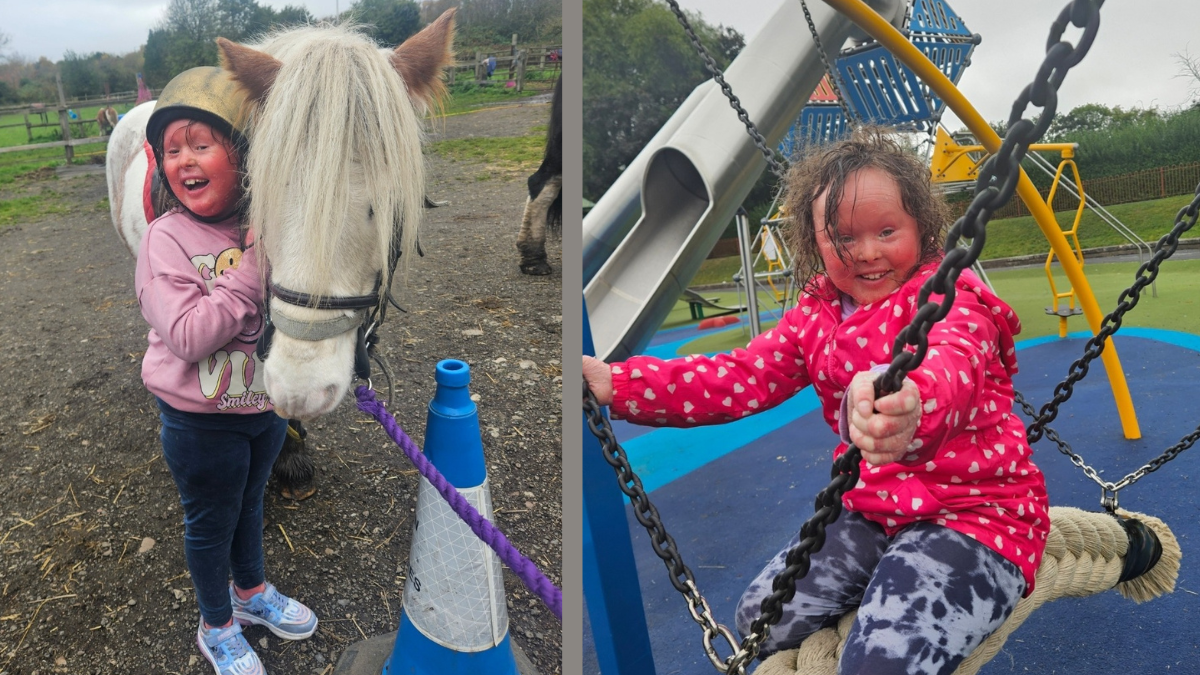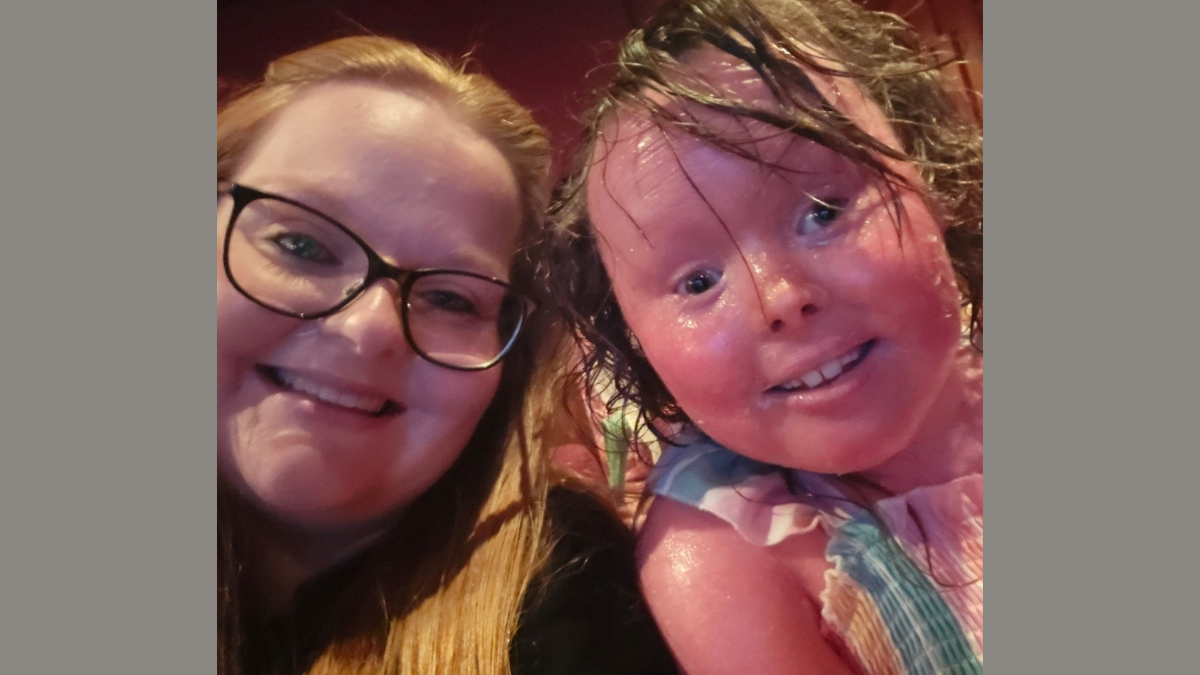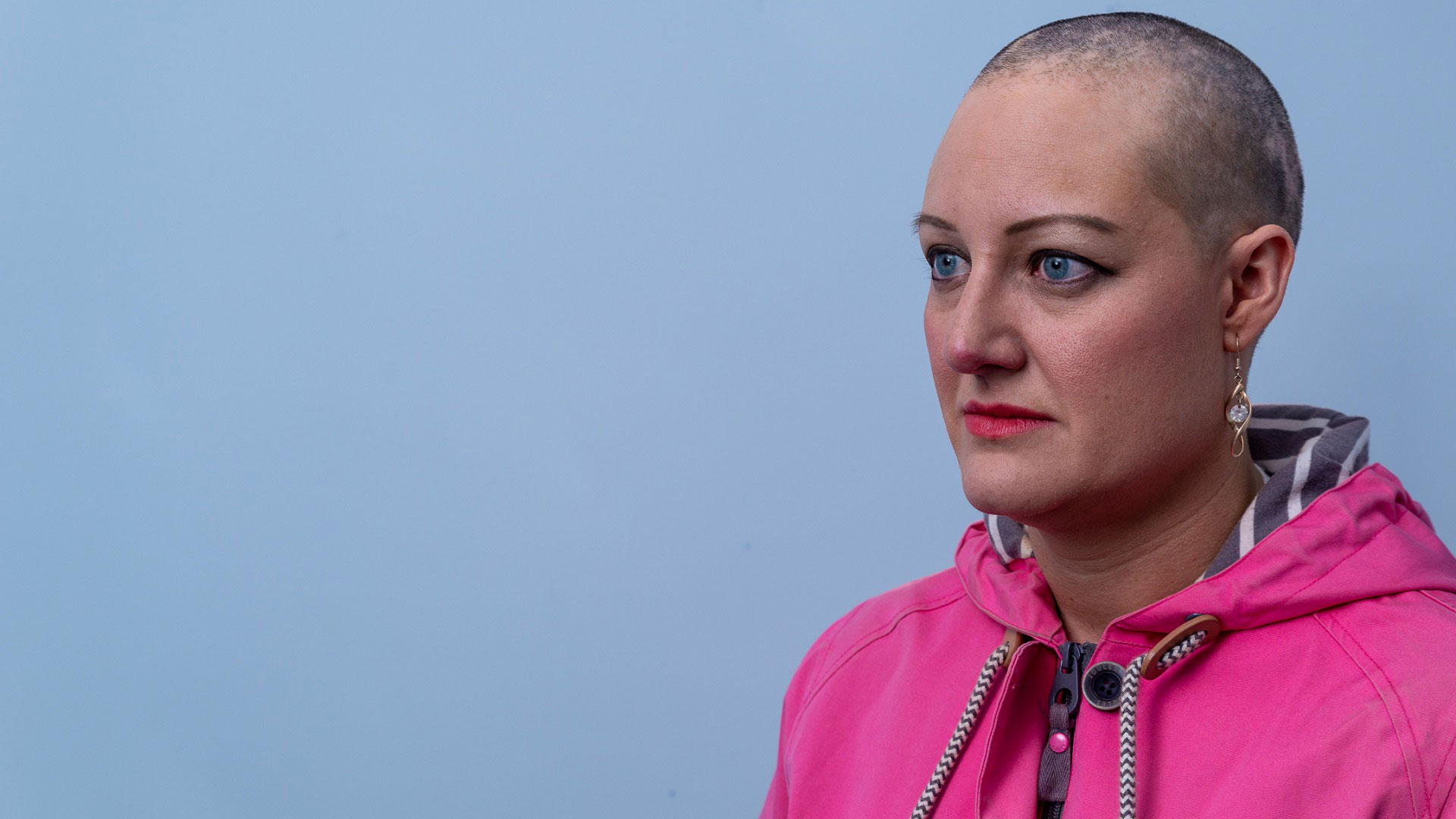My daughter Poppy has Harlequin ichthyosis, a rare genetic skin condition that affects the way her skin grows and protects her body. Her skin regenerates much faster than usual, but without the lipid layers that give typical skin its elasticity. As a result, it splits easily and can be incredibly itchy and uncomfortable. Poppy is also at risk of skin infections which can easily turn to sepsis, as her skin barrier is so compromised. This affects Poppy’s mobility, too. The tightness of her skin means it takes more effort to move, and can be painful.
Poppy’s Harlequin ichthyosis also affects her vision and hearing, impacts her ability to regulate body temperature and causes partial alopecia– though she has more hair than many with the condition. It can lead to limb differences too, but Poppy only has slight variations in her fingers and toes.
Managing her condition is a full-time job. Her skin needs creams applied every four hours – sometimes more, depending on the day. She has daily baths between two and three hours long. Her clothing has to be carefully considered too, opting for loose and breathable cotton. That said, Poppy absolutely loves her clothes — and if she’s set on wearing something, she will! We just do our best to make it work for her.
If I see children staring at Poppy, I usually say: “this is Poppy, would you like to come and say hello?”
Poppy is a typical eight-year-old. She loves to sing and dance, she loves the trampoline and she loves all animals, including our much beloved dogs and Guinea pigs at home. She’s also extremely close to her siblings, who have taken on a protective and caring role to support her. They are amazing and while it can be chaos, there’s a lot of love between them all.
Having a sister with a visible difference means that my other children are a lot more accepting and inclusive of difference in other people as well. They’re all brilliant kids and I couldn’t be prouder.

Poppy is a typical eight-year-old girl who loves animals and being outdoors.
Confidence is something we’ve had to work on with Poppy. There was a time where she didn’t want to be alive anymore because of how she looks. As any parent knows or understands, this was truly heartbreaking for us. School was particularly hard to navigate. There was little understanding or inclusion. From our personal experience of mainstream school, representations of disability in mainstream schools are invisible – linked to behaviour and neurodivergence rather than physical disabilities and visible differences, so Poppy often felt alone.
She experienced isolation and sometimes unkindness disguised as inclusion. We’d see things like children holding her hand and then wiping it afterwards, which would upset Poppy. But, since moving to a specialist school in September, the change to Poppy has been remarkable. She’s now in an environment with other children who have disabilities and differences and her confidence has grown. She relates to others and feels less alone.
Having a visible difference presents daily challenges most people never think about. Everyday activities—going to the shops, out for a meal—are often accompanied by stares, comments, or people pulling their children away. Poppy’s been aware of this from a young age. I’ll never forget being in a lift with her when she was just two years old, and a man said, “What’s wrong with her skin?” Poppy, who wasn’t yet verbal, just kept repeating the word “skin” over and over.
Some days I’m happy to raise awareness. Other days, I’m just a mum of three trying to get through a hectic day.
If I see children staring at Poppy, I usually say: “this is Poppy, would you like to come and say hello?” It opens a conversation, doesn’t shame a child for their curiosity, and gives Poppy a little boost of confidence. So, to parents reading this: please don’t pull your children away. Encourage kindness. Say hello.
It’s not always easy setting boundaries with adults, either. We often get asked, “What’s wrong with her face?” Or approached with miracle cure suggestions from people who don’t even know what her condition is. I tend to divert the conversation and talk to Poppy afterwards. I tell her that it’s ok to have boundaries and be private. “You wouldn’t ask someone if they’re wearing pants today!” I say, “so they shouldn’t be asking you personal questions like that either.” This always gets a giggle out of Poppy. Humour helps her – and me – get through it. Honestly, these moments tend to upset me more than they upset her. She’s made of strong stuff.
I know people are curious. But I’d remind anyone who hasn’t experienced visible difference: you’re probably not the first person to stare or ask questions today, and you won’t be the last. Some days I’m happy to raise awareness. Other days, I’m just a mum of three trying to get through a hectic day. So smile, say hello, and treat Poppy like you would any other child.
Being a parent of a child with Harlequin ichthyosis is like living in a world most people don’t see. Only those who experience visible difference, disability or anything outside society’s “norms” really understand. But we need to bring that world out into the open – so there’s more understanding, more compassion, and more inclusion.
As for the future? I’d be surprised if Poppy doesn’t become a comedian – she’s hilarious! But whatever path she chooses, I want her to believe she can do anything. Her journey may look different from others’, and she might need more support along the way, but I’ll always remind her:
Only you get to decide your limits. You’re capable of more than anyone else could ever imagine.

